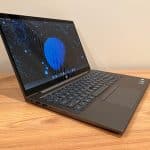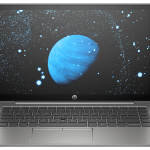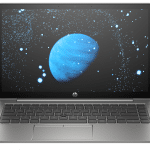HP offers enhanced protection for enterprise endpoints

The rise of remote and hybrid work has increased the risk of PCs being compromised by attackers with brief physical access, underscoring the need for protection and visibility into the integrity of devices throughout their lifetimes.
To combat this, HP is launching a new HP Enterprise Security Edition, a unique suite of capabilities designed to enhance the physical security of PC endpoints.
Attackers use GenAI to write malicious code

The latest threat insights report from HP Wolf Security has identified a new campaign using malware believed to have been written with the help of GenAI.
Analysis of the campaign, targeting French-speakers using VBScript and JavaScript, finds the structure of the scripts, comments explaining each line of code, and the choice of native language function names and variables are strong indications that the threat actor used GenAI to create the malware.
Cyber 'ad-versaries' adopt professional marketing techniques

A new report from HP Wolf Security shows cybercrime groups are using professional advertising tools to optimize their malware campaigns and convince users to take the bait.
The report identifies the DarkGate campaign which uses ad tools to sharpen attacks. Malicious PDF attachments, posing as OneDrive error messages, direct users to sponsored content hosted on a popular ad network. This leads to DarkGate malware which hands backdoor access to cybercriminals into networks, exposing victims to risks like data theft and ransomware..
HP CEO explains why the company is bricking third-party ink printers

Printer owners have several options when it comes to supplying their printers with ink. The two main choices are to buy first-party or third-party printer ink. The former is official, the latter less expensive. Both options work well, provided that manufacturers do not manipulate printers to block support for third-party ink cartridges.
Printer manufacturers like HP have a vested interest that customers purchase first-party printer ink or, even better, subscribe to printing plans. HP CEO Enrique Lores confirmed to CNBC Television that HP loses money with each printer sold and that the company makes money with printer ink sales and subscriptions.
Malware 'meal kits' give attackers the ingredients to bypass detection

A new report from HP Wolf Security reveals cybercriminal marketplaces offering low-level attackers the tools needed to bypass detection and infect users in the form of so-called 'meal kits'.
These are pre-packaged malware kits which give low-level attackers all the ingredients to evade detection tools, making it easier for them to breach organizations and steal sensitive data.
Three-quarters of organizations struggle with remote work challenges

The shift to remote and hybrid working models has magnified IT operational challenges for 75 percent of organizations.
A new study by Forrester Consulting for HP surveyed over 300 IT and security decision makers and finds the main challenges companies face when managing remote endpoints are ensuring data security (60 percent), keeping software on remote devices up to date (55 percent), and maximizing the accuracy of asset databases (55 percent).
Illuminate your Windows 11 experience with Dynamic Lighting

As technology continues to evolve, so do the ways in which we interact with our devices. The integration of "Red, Green, Blue" (RGB) lights within various gadgets has opened up a realm of personalization, allowing users to create unique environments that extend beyond the screen. Microsoft has recognized this trend and with its latest feature update, unleashes the power of Dynamic Lighting on Windows 11.
The Dynamic Lighting feature in Windows 11 embodies a step towards a more unified and interactive user experience. It finally grants users the liberty to control their RGB devices right from the Windows Settings -- something many of us have been waiting for. This means you can now extend your Windows accent color to the devices around you, synchronize RGB effects across devices from different brands, and have finer control over how apps manage your device’s lights.
Biggest tech acquisitions of 2022

The economic downturn of 2022 hasn’t stopped the tech industry from engaging in merger and acquisition activity. Though deals have decreased by 40 percent in the first half of 2022, several firms and solution providers have negotiated pacts of up to billions of dollars.
Most of the acquisition activity is because of the overall decline in the stock market. When prices plunge and company valuations reduce, firms step in to bargain.
HP Support Assistant DLL hijacking vulnerability could grant attackers privilege escalation

HP has issued a warning about a security issue with its HP Support Assistant software. Pre-installed on numerous HP systems, and included with the installation of various products from the company, HP Support Assistant has been found to have a privilege escalation vulnerability.
Tracked as CVE-2022-38395 and assigned a score of 8.2, the vulnerability is of high severity. The good news is that a fix is available.
Cybercriminals take shortcuts to attack business PCs

Office macros have long been a favorite attack method for cybercriminals but now that Microsoft has started blocking them by default the bad guys have started to turn to other methods.
A new report from HP Wolf Security shows a shift to shortcut (LNK) files being used to deliver malware. Attackers often place shortcut files in ZIP email attachments, to help them evade email scanners.
Honor among cyber thieves, the professional side of the dark web

Much like the legitimate eCommerce world, trust and reputation have become essential parts of the cybercriminal trade. New research by HP Wolf Security finds 77 percent of cybercriminal marketplaces analyzed require a vendor bond -- a license to sell -- which can cost up to $3,000.
In other evidence of a professional approach, 85 percent of these sites use escrow payments, and 92 percent have a third-party dispute resolution service. Every marketplace provides vendor feedback scores too. Cybercriminals also try to stay a step ahead of law enforcement by transferring reputations between websites -- as the average lifespan of a dark net website is only 55 days.
Threat of firmware attacks is a growing concern for business

New research from HP Wolf Security finds that 80 percent of IT leaders are concerned about their capacity to respond to firmware attacks.
The study shows that 67 percent of IT leaders say protecting against, detecting, and recovering from firmware attacks has become more difficult and time-consuming due to the increase in home working, with 64 percent saying the same of analyzing the security of firmware configuration.
HP Dev One Pop!_OS Linux laptop [Review]

When I first learned that System76 and HP were partnering on a laptop running Pop!_OS, I was absolutely shocked. After all, System76 is a computer manufacturer, so HP is sort of one of its competitors. Not to mention, Pop!_OS isn't exactly a well-known operating system outside the Linux community -- it doesn't carry the same name recognition as Ubuntu, for instance.
Regardless of why this collaboration happened, the HP Dev One laptop is officially here, available to anyone in the United States that has $1,099. We have been testing the new developer-focused notebook and we have definitive opinions to share, including whether or not you should buy it. So, without further ado...
HP Dev One laptop running System76's Ubuntu Linux-based Pop!_OS now available

Last month, the open source community was abuzz with excitement following a shocking announcement from System76 that HP was planning to release a laptop running the Pop!_OS operating system. This was significant for several reasons, but most importantly, it was a huge win for Linux users as yet another hardware option was becoming available. Best of all, HP employees have been trained by System76 to offer high-quality customer support. If you aren't aware, System76 support is legendary.
At the time of the announcement, details about the hardware were a bit scarce, but I am happy to report we now have full system specifications for the 14-inch HP Dev One laptop. Most interestingly, there is only one configuration to be had. The developer-focused computer is powered by an octa-core AMD Ryzen 7 PRO 5850U APU which features integrated Radeon graphics. The notebook comes with 16GB RAM and 1TB of NVMe storage, both of which can be user-upgraded later if you choose.
HP chooses Ubuntu-based Pop!_OS Linux for its upcoming Dev One laptop -- could System76 be an acquisition target?

Rumors have been swirling lately that HP was planning to release a laptop running the Pop!_OS operating system. Today, System76's CEO Carl Richell shared on Twitter that this is absolutely happening -- a 14-inch developer-focused notebook called "Dev One." While this is good news for the Linux community overall, it is quite curious. After all, System76 doesn't just maintain the Pop!_OS operating system, it sells computers running the distribution too. In other words, HP and System76 are competitors in the hardware business.
So, what does this tell me? Well, it is purely speculation, but as the old adage says, "where there is smoke, there is fire." And so, it is safe to assume that HP acquiring System76 could be a possibility in the future -- if this new relationship pans out at least. HP could be testing the waters with the upcoming Dev One. Keep in mind, System76 does not even build its own laptops, so we could see the company leave the notebook business and focus on desktops only -- let HP handle the Pop!_OS laptops.
© 1998-2024 BetaNews, Inc. All Rights Reserved. Privacy Policy - Cookie Policy.